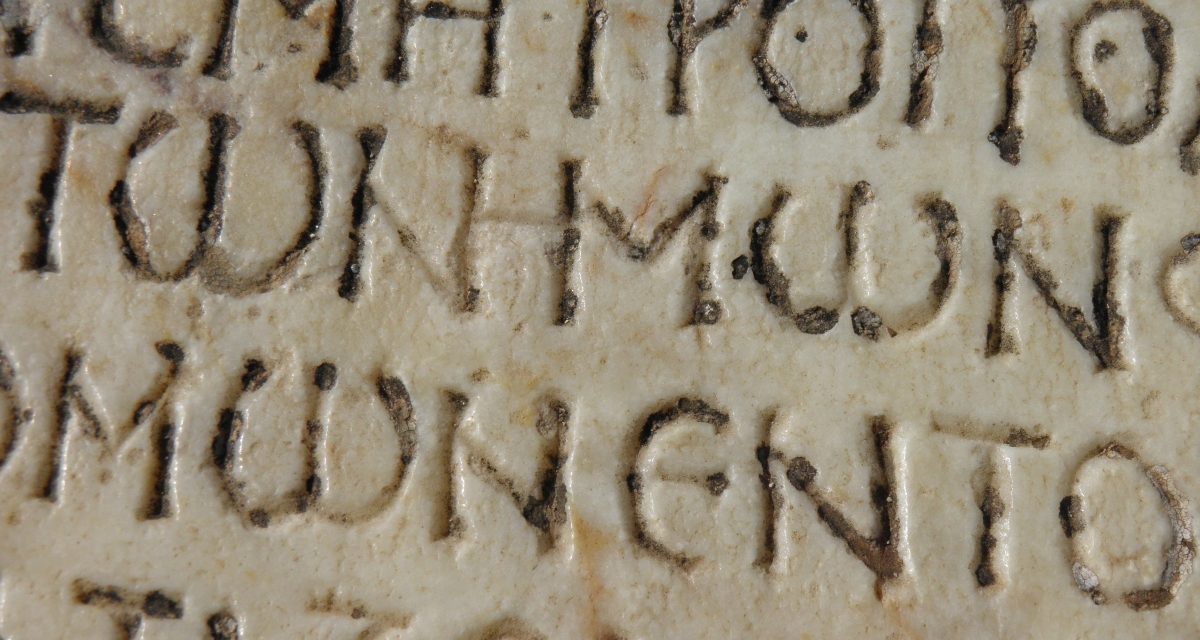As evidenced by our series on English words of Greek origin, there are many words English speakers use daily without realizing they originate from Greek: from music and history to idea and plastic!
The same can be said about many common and less common names used in the Anglophone world. In this article, we list a number of names in English that come directly or indirectly from the Greek language:
Agnes derives from Agné, the female of the adjective hagnos “pure, chaste”.
Alexander (Alexandros) was, famously, the name of one of the most prominent Greeks in history (the Greek verb historeo “to research (and) record”), Alexander the Great; it means “defender, protector of men” from the verb alexo “to ward off, to defend” and andr-, the stem of aner “man”. Its female form is Alexandra, where Sandra and Sandy often come from.
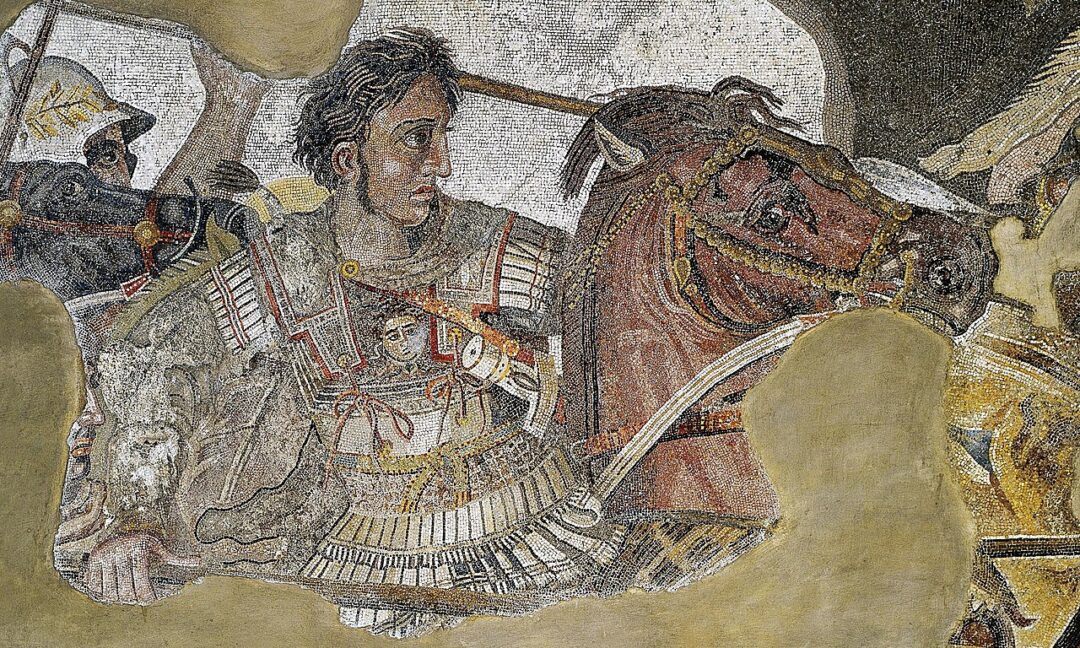
Alexis also derives from the verb alexo (see above).
Althea is a variation of the Greek name Althaea, which may be related to the word althos (“healing”). In Greek mythology (from mythos “word, tale” + logos “speech”), Althaea was a queen and mother of the Calydonian hero Meleager.
Andrew (Andreas) comes from andr-, the stem of aner “man”.
Anastasia is the female form of the male name Anastasios, deriving from the Greek word anastasis “resurrection”, from ana “up, re-” + histemi “to stand”.
Angela comes from the male noun angelos “messenger, angel“.
Anthea derives from anthos “blossom”. In mythology, Anthea (or Antheia) was the name of a lesser deity, and an epithet (from epithetos “additional”) of goddess Hera.
Atticus derives from a Latin adjective, meaning “of Attica”, a region encompassing Athens.
Barbara (and its diminutive Barbie) comes from Varvara, the female of varvaros “foreign, stranger”; the word barbarian also comes from the same root.
Basil comes from Vassilios, which is directly descended from the word vassileus (“king”). The plant of the same name and the word basilica also derive from that same word. In Greek Orthodox tradition, Saint Basil is the equivalent of Father Christmas or Santa Klaus.
Carissa comes from charis “grace” where charisma and Eucharist also come from.
Cassandra was the name of a mythical Trojan princess with the power of divination; it is the female version of Cassander (Kassandros) and it possibly comes from kekasmai “to shine; excel over” + andr-, the stem of aner “man”.
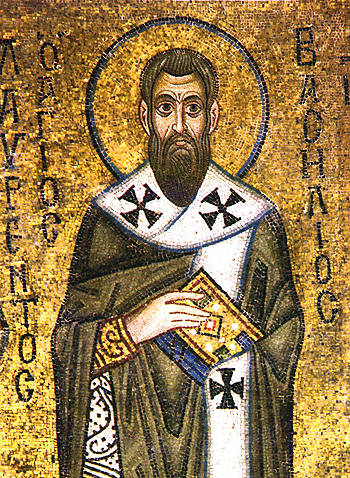
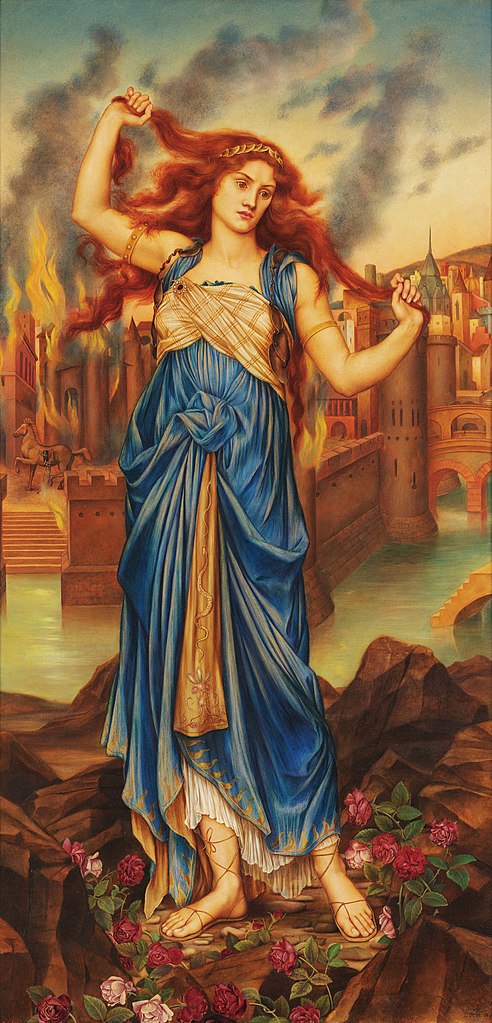
Catherine (and also Katherine, Kathleen and Katrina) comes from the Greek name Aikateríne, of uncertain etymology; Karen and its variants (such as Caren and Karyn) derive from a Danish vernacular form of Catherine.
Christian and Christine (and also Christina, Kristen and Kirsten) derive from Christ (Christos) which is the Greek equivalent of the Hebrew “messiah”, meaning “[the] anointed [one]” (for more info on this and other Greek words regarding Christianity, read our article).
Christopher comes from Christophoros, “carrier of Christ”, from Christos + phero “to carry, to bear”.
Cleopatra was a famous queen of Egypt, a member of the Ptolemaic dynasty, a Macedonian Greek royal house; Alexander the Great also had a sister of the same name. It means “glory of her father”, from kleos “glory” + pater “father”.
Clio (Kleio) in mythology is the name of the muse of history; the name comes from kleo “to recount, celebrate”.
Crystal (Chrystal, Krystal) is a name that, like the eponymous (epi “on, upon” + onyma, a form of onoma “name”) gemstone, derives from Ancient Greek krystallos “ice”.
Cynthia (Kynthia) was an epithet of goddess Artemis, meaning “from Mount Cynthus” on the sacred island of Delos, where –according to the myth– she was born along with her twin, Apollo.
Cyril is the English form of the Greek name Kyrillos, from the word kyrios “lord, master”, which is often used to refer to God. Kyrie, the name of a type of prayer in Christian liturgy, comes from a transliteration of Kyrie eleison “Lord have mercy”; the modern given name Kyrie comes from the name of the prayer.
Damian comes from the name Damianos, which was derived from the verb damao, “to tame”.
Damon is another name deriving from damao, “to tame”
Demetrius is the Latinized form of the Ancient Greek male given name Demetrios, meaning a follower of Demeter, the Olympian goddess of agriculture.
Dennis is derived from the name of Saint Dionysius, itself deriving from Dionysos, the Greek god of wine.
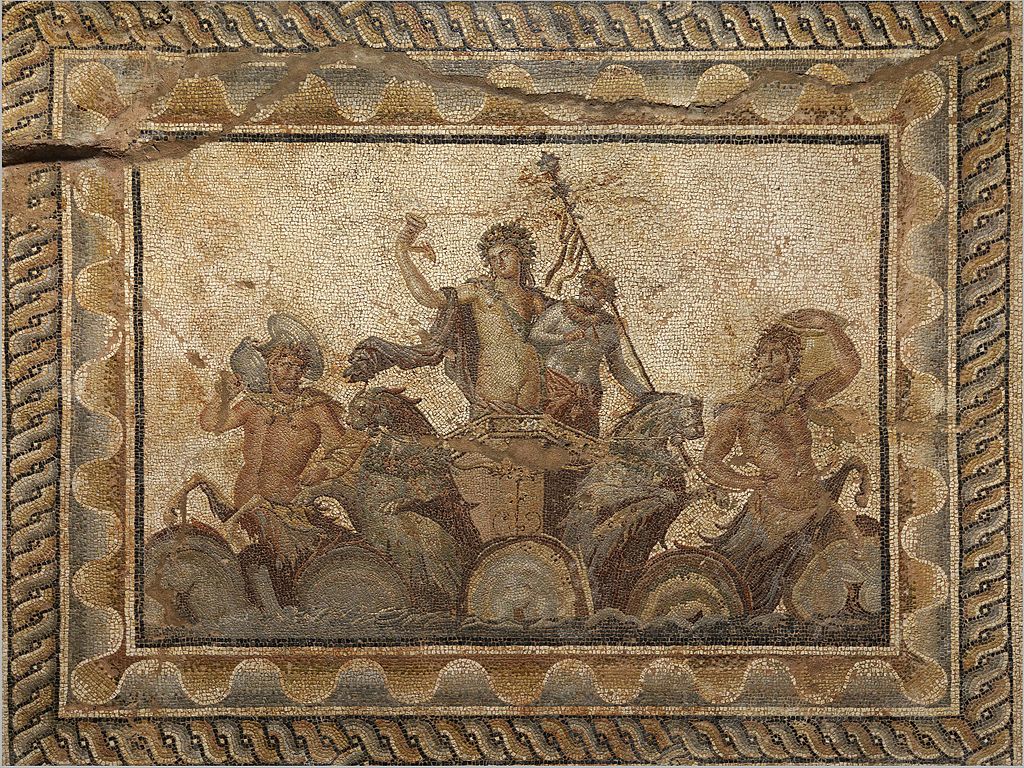
Dorothy means “gift of God”, from theos “god” and doron “gift”; the name Theodore (Theodoros) andits female form Theodora also derive from these same words.
Elaine (see Helen)
Ellie is usually a shortened form of various female names like Eleanor, Elizabeth or Ellen; however, as a stand-alone name, it is a variation of a Greek name alternatively spelled Helle, belonging to a mythological figure who played an important part in the story of the Argonauts, and after whom the strait of Hellespont (modern-day Dardanelles) is supposedly named.
Eugene (and its female form Eugenia) comes from the adjective eugenes “noble, high-born” from eu “well” + genos “race, kind”.
Eustace comes from the Greek nameEustathios, “steadfast”, from eu “good” + histemi “to stand”.
Evangeline comes the Latin evangelium “gospel”, itself from the Greek evangelion “gospel”, literally “good news”, from eu “good” + angelos “messenger”, (where the word angel also comes from).
George comes from the Greek name Georgios, from the word georgos “farmer”, itself from the words ge “earth” + ergon “work”. Saint George –who, according to tradition, was a Cappadocian Greek who served in the Roman army and was martyred under emperor Diocletian– is traditionally depicted as a dragon-slayer. In the 11th century, he was said to have appeared in visions to crusaders, bearing a red cross; he was thus associated with chivalry and later became the official patron saint of England, hence the popularity of the name in English-speaking countries. The US state of Georgia is named after King George II of Great Britain. Note, however, that –contrary to folk etymology– the country of Georgia does not derive its name from the Christian saint but, instead, from the Persian word gurğ/gurğān “wolf”, according to the scholarly community.
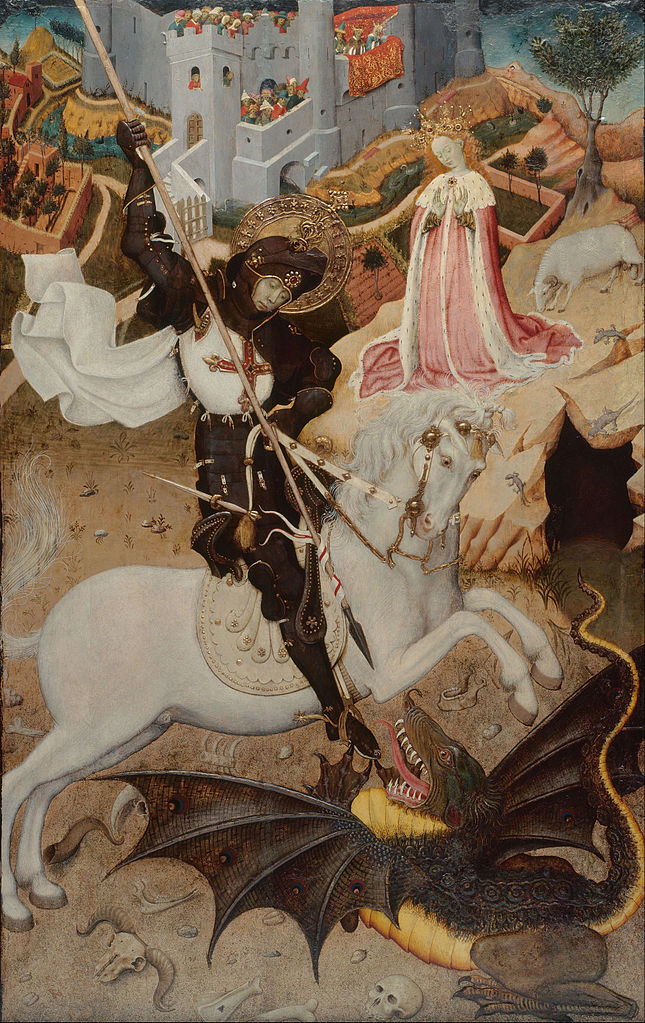

Gregory derives from the Greek name Gregorios, “watchful, vigilant”, from the verb egeiro “to awaken, to arouse”.
Hector was the name of a mythical prince of Troy, a central character in the Iliad. It means “holding fast”, deriving from the verb eho “to own, to possess”.
Helen, Elaine and Ellen all come from the Greek name Helene, also belonging to a central character from the Iliad, Helen of Troy, known for her astounding beauty. The original name is of uncertain etymology.
Homer, credited as the author of the Iliad and the Odyssey, was the Greek epic poet par excellence. In Greek, his name, Homeros, literally means “pledge; hostage”, from homou “together” + the ar– found in ararisko “to fasten, join”.
Irene is a Greek name (Eirene) meaning “peace”, possibly from the verb eiro “to fasten together”.
Iris was a goddess in mythology, the personification of the rainbow and messenger of the gods, after which both the part of the eye and eponymous flower are named; it is believed to be of Proto-Indo-European origin.
Isadora (and Isidora) is the female variant of the (less common) male name Isidore, from Isidoros, which, similarly to Theodoros, meaning “gift of (the goddess) Isis”.
Jason –famous as the name of the mythological leader of the Argonauts– means “healer” from the verb iaomai “heal, cure”.
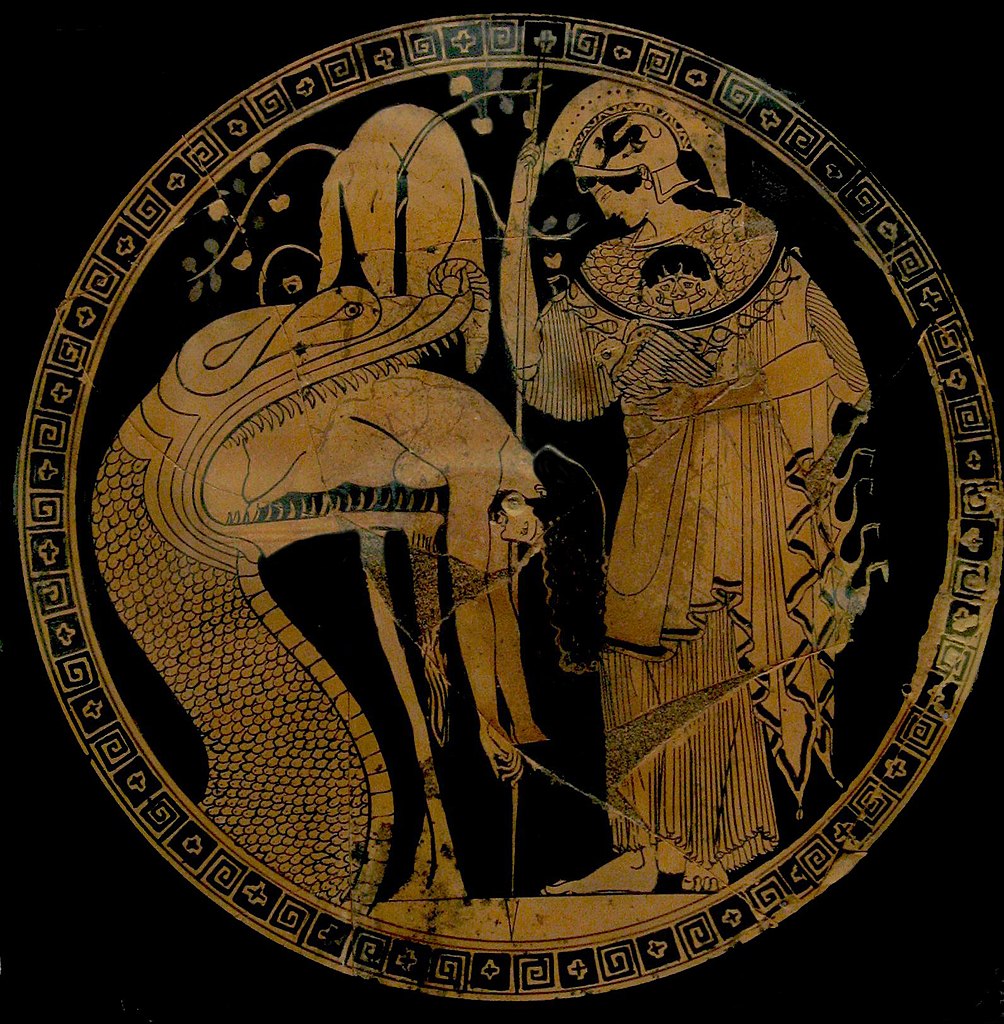
Jerome derives from the Old French vernacular form of the saint’s name Hieronymus, from hieros “sacred, holy”+ onuma “name”.
Karen (see Catherine).
Kyrie (see Cyril).
Larissa (Lara) is a first name that you will likely never encounter in Greece, but you might visit Larissa (pronounced Lárissa) in Thessaly, the country’s fifth most populous city. It is instead very common in countries like Russia, Ukraine or Romania. Initially the name of a mythical nymph, it was also the name of a Christian martyr; it may derive from the adjective laros “sweet, pleasing”.
Lydia is the female form of Lydos, originating from the ancient region of Lydia, in western Anatolia. It carried the sense of “beautiful, noble one”.
Margaret (and, by extension, its diminutive forms and variations including Maggie, Madge, Marge, Margo(t), Marjorie, Megan, Rita, Greta, Gretchen and Peggy) derives from margaron “pearl”, where margarine also takes its name from.
Melanie derives from the Ancient Greek adjective melas “black,dark”.
Melissa is the Greek word for “bee”, deriving from meli “honey”.
Myrtle is a feminine given name derived from the eponymous plant, whose official name is myrtus, the Latin form of the Greek plant name myrtos.
Nicholas (Nick, female Nicole, Nicola) is one of the most common names in Greece, where it is usually shortened to Nikos; it literally means “people’s champion”, from nike “victory” + laos “people”, and the eponymous saint is considered a protector of seafarers in Orthodox tradition. However, in Western tradition, he has been linked with the festivities and gifts of Christmastime – hence the famous figure of Santa Claus, a contraction of Nicolaus, the name’s form in Germanic languages.
Penelope was another famous Homeric character, the wife of Odysseus (Ulysses). Her name derived from penelops, a kind of particoloured duck.

Peter originates from petros “stone, rock”.
Philip (Philippos) was the name of the Macedonian king who fathered Alexander the Great. It literally means “fond of horses”, from philos “dear, friend” + hippos “horse”.
Philomena (and Filomena) probably comes from Ancient Greek Philoumene, “beloved”); it was the name of an alleged early Christian martyr from Rome.
Phoebe is the female form (Phoive) of Phoivos, (“bright, radiant”), the principal epithet of the sun-god Apollo; in Greek mythology, Phoebe was a princess and priestess from Messinia.
Phyllis is an Ancient Greek name literally meaning “foliage”.
Rhea, in Greek mythology, was a Titaness and mother of five of the Olympian gods. Her name might derive from era, an ancient word for “earth” or from the verb rheo “to flow”.
Rose comes from the eponymous flower, whose name derives from rodon “rose”.
Sebastian is another name that has become very widespread in a number of languages, due to the famous eponymous saint. It comes from the Greek Sevastianos, originally a demonym (from demos “the people [of a particular place]” + onyma “name”) for someone from Sevasteia (the modern-day city of Sivas in Turkey), itself named after Sevastos (“august, venerable” from sevas “awe, reverence”), a Byzantine equivalent of the Roman imperial title “Augustus”.

Selena and Selina are probable variants of Selene, the goddess and personification of the moon in Greek mythology.
Sophia (where Sophie/Sophy also comes from) means “wisdom” in Greek.
Stephen (or Steven) and its female form Stephanie are derived from Stephanos, literally meaning “crown, wreath”, from the verb stepho “to put around, to crown”.
Sibyl (or Sybil) comes from sivylla “prophetess, oracle”.
Theodore see Dorothy
Tiffany is the English feminine form of the Greek given name Theophanía; it was formerly often given to children born on the feast of Theophania (“revelation of God to humans”, from theos “god” + phaino “to appear”), that is, Epiphany (from epiphaneia “manifestation”).
Timothy (Timotheos) means “he who honors God”, from timao “to honor” and theos “god”.
Veronica / Bernice (Verenike) is the Ancient Macedonian form of the Attic Greek name Pherenike, which means “bearer of victory” (phero “to bear” + nike “victory”).
Zoe (and its variations, Zoë, Zoi, Zoey & Zooey) comes from the Greek word for “life”.
It is also worth mentioning that there are various businesses with names taken from Greek, from the luxury watch manufacturer Omega (named after the final letter of the Greek alphabet) to the luxury brand Hermès (the French version of Hermes, the Greek antecedent of the god Mercury).
To name only the most prominent international companies: Amazon is named after the eponymous mythical tribe of female warriors; Nike is the Greek word for “victory”; the name Pepsi was coined to imply that the drink could cure dyspepsia (indigestion) – pepsis is the Greek word for digestion; finally, ASUS takes its name from Pegasus, the winged horse in Greek mythology.
Discover also the names of six countries that actually come from Greek
You might also be interested in our series: Common words you (probably) didn’t know were Greek – Part 1; Part 2; Part 3 and Part 4
Read also via Greek News Agenda: USA city names of Greek origin – Part 1; USA city names of Greek origin – Part 2; Greek words about health and medicine in English
N.M.

